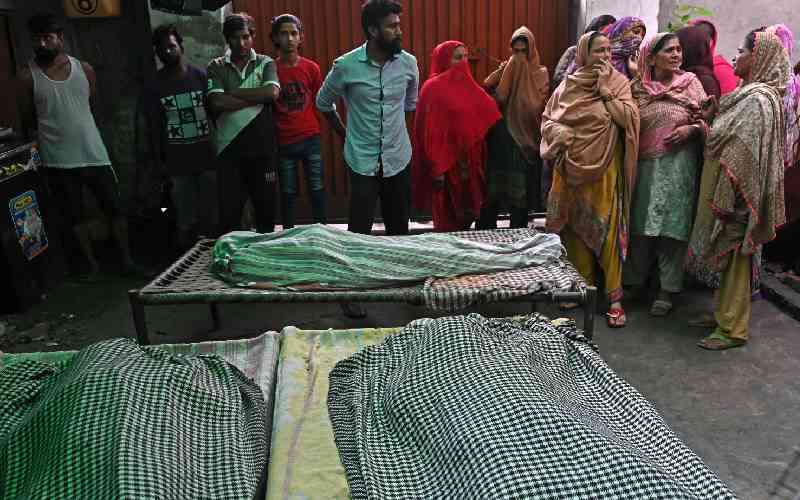Travel Safety Alert: Iceland Volcano Erupts for Ninth Time in Less Than Two Years, What Tourists Need To Know - Travel And Tour World
Thursday, July 17, 2025

For the ninth occasion in less than two years, a volcano erupted in Iceland’s Reykjanes Peninsula, in the west of the country, early Wednesday. The eruption, coming from the craters of Sundhnukagigar, is the latest in a series of crescendos of volcanic activity that has become a part of daily life in Iceland in recent months. While not a giant among volcanic eruptions, the event did cause some concern among locals and tourists in the area.
A new event in nature is taking place In Reykjanes Peninsula, that is the volcano.
With its stunning and unique landscape and geothermal activity, Iceland is familiar with volcanic eruptions. This is a small, ongoing event as part of the volcanic system in the Reykjanes peninsula. That has made it a hub for scientific research, as well as tourism, since eruptions started in December 2023.
The eruption is small, said Benedikt Ofeigsson, a geophysicist with the Iceland Meteorological Office, speaking to reporters. The fissure is about 2 km (1.2 miles) long and there is very little ground deformation. Maybe to early to say something, when you watch this drag of magma but no eruption has taken place so far – so it looks like no threat to the area or wing of Þórsmörk mountain ridge at least not for now,“ a local says, according to Kerteminde News.
The eruption itself has not disrupted air travel, but the air quality near the volcano has worsened. Those living downwind from the volcanic vents are being advised to close the windows to ensure the toxic sulfur dioxide and ash doesn’t enter their homes. The air quality around has been described as “terrible” and long-time outside activity is prohibited.
As for travelers, the eruption is a reminder that Iceland’s natural world is dynamic. There is nothing unusual about volcanic activity in the region, but the ninth eruption in less than two years is a sign of an active geological region.
Most of Iceland’s tourist hot spots — Reykjavik and the Golden Circle — have not been affected by the eruption, so the good news is that you can still visit there, when you’re ready. But those looking to visit the Reykjanes Peninsula or any neighboring areas still need to use caution and follow recent reports of volcanic activity.
(Travellers should be aware that this also includes localized impacts of volcanic activity i.e. air quality impacts) Apart from staying indoors, it’s vital for tourists to eschew getting too close to eruptions — unless accompanied by a local, qualified guide — if they don’t want their lives to be potentially on the line, according to The Guardian’s Amy Sackville. And our ministry of health is monitoring how the epidemic is developing, and will share information every now and then to inform the public.
And for those who’d hoped to receive a guided tour of Iceland’s abundance of geothermal sites, they’d be wise to read up on Iceland’s geothermal hotspots (like the Blue Lagoon and the still active geothermal fields in the south of the country) instead of booking a tour.
Always follow updates from local authorities and the Icelandic Meteorological Institute around volcanic and air activity.
Should things turn for the worse, be sure to adhere to evacuation protocols, established by local officials.
If you live in areas affected by volcanic ash or smoke, mask up and stay indoors, particularly if you have pre-existing respiratory issues.
An eruption can bring dangerous situations such as lava flows or toxic gases. Just don’t enter in some forbidden areas that local authorities signed.
The possibility of natural disaster is always there and we always recommend that all travelers get travel insurance that covers natural disaster as well as unexpected health problems.
While for business air travelers making their way to Iceland, this volcanic activity could result in some minor turbulence in local air quality such as when flying in or out of Icelandic airspace. But most air traffic to and from Iceland is unaffected, so scheduled flights can take off and land.
Business travelers, in particular, should also stay apprised of the latest air quality in the case of meetings or events in areas near the vicinity of the eruption. Residents that find themselves in this area will need to consider their travel and outdoor activity plans.
Iceland’s volcanic landscapes continue to pull in visitors from all over the world, who want to see nature show off its muscles firsthand. The eruptions have hardly deterred tourists; if anything, they have only increased interest in this area where adventurous travelers keep looking for edgy new experiences.
While eruptions may paralyz the land, they also present a once in a lifetime experience of seeing the land in its white hot new born glory. Unique: I realize that I’ll never see an active volcano and an ongoing eruption again. For a geology freak like me, this is a once in a lifetime sight.
Just because that amount of daylight might be good for some kind of outdoor fun in some of Icelands other-worldly scenery, that doesn’t mean you should forget to learn how to stay safe on your travels, either. Iceland also drips with otherworldly glaciers, cascading waterfalls and geothermal spas that will enchant nature lovers like a moth to a flame, and inject any modern explorer with awe and curiosity.
When the Reykjanes Peninsula in Iceland makes its ninth eruption in less than two years, tourists and residents living nearby get a stark visual reminder of the country’s wild natural beauty — and its potential peril. The most recent eruption has not disrupted Iceland’s most popular tourist sites, but people in affected areas should use caution and follow local safety advice.
Travelers who may be considering a trip to Iceland should remember safety precautions and monitor air quality and the ongoing volcanic activity. Tongariro is one of the most geologically active places on Earth, and with the right knowledge, the eruption can even be an exciting feature of a once-in-a-lifetime journey.
Tags: geophysicist insights, Iceland air traffic, Iceland natural disasters, Iceland News, Iceland tourism, Iceland volcanic tourism, Iceland volcano, Icelandic air quality, Reykjanes Peninsula eruption, Reykjavik travel, Tourism Impact, Travel Safety, volcanic activity Iceland, volcanic disruption, volcanic eruption news, volcanic eruptions
You may also like...
Diddy's Legal Troubles & Racketeering Trial

Music mogul Sean 'Diddy' Combs was acquitted of sex trafficking and racketeering charges but convicted on transportation...
Thomas Partey Faces Rape & Sexual Assault Charges

Former Arsenal midfielder Thomas Partey has been formally charged with multiple counts of rape and sexual assault by UK ...
Nigeria Universities Changes Admission Policies

JAMB has clarified its admission policies, rectifying a student's status, reiterating the necessity of its Central Admis...
Ghana's Economic Reforms & Gold Sector Initiatives

Ghana is undertaking a comprehensive economic overhaul with President John Dramani Mahama's 24-Hour Economy and Accelera...
WAFCON 2024 African Women's Football Tournament

The 2024 Women's Africa Cup of Nations opened with thrilling matches, seeing Nigeria's Super Falcons secure a dominant 3...
Emergence & Dynamics of Nigeria's ADC Coalition

A new opposition coalition, led by the African Democratic Congress (ADC), is emerging to challenge President Bola Ahmed ...
Demise of Olubadan of Ibadanland
Oba Owolabi Olakulehin, the 43rd Olubadan of Ibadanland, has died at 90, concluding a life of distinguished service in t...
Death of Nigerian Goalkeeping Legend Peter Rufai

Nigerian football mourns the death of legendary Super Eagles goalkeeper Peter Rufai, who passed away at 61. Known as 'Do...





